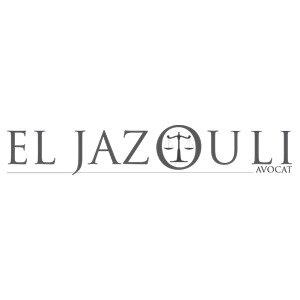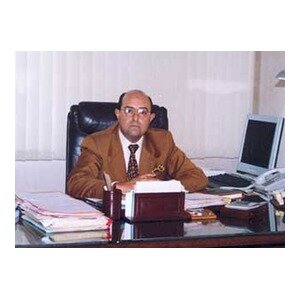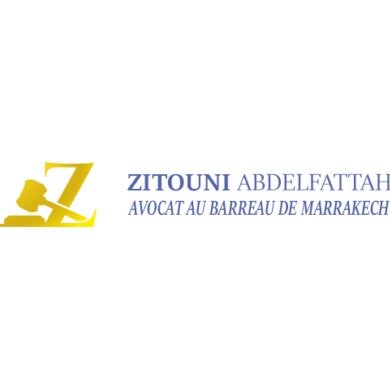Best Conveyancing Lawyers in Marrakesh
Share your needs with us, get contacted by law firms.
Free. Takes 2 min.
Free Guide to Hiring a Real Estate Lawyer
List of the best lawyers in Marrakesh, Morocco
About Conveyancing Law in Marrakesh, Morocco
Conveyancing is the legal process of transferring property ownership from one party to another. In Marrakesh, Morocco, the conveyancing process involves rigorous checks, formal documentation, and adherence to local legal frameworks to ensure that property transactions are secure and legally binding. The process is governed by Moroccan property and real estate laws, which can be complex for both local and foreign buyers and sellers. Conveyancing in Marrakesh includes several steps such as title searches, verification of ownership, checking for outstanding debts, and official registrations in the Land Registry.
Why You May Need a Lawyer
Engaging a lawyer during a property transaction in Marrakesh is highly recommended due to the intricate legal and administrative steps involved. Here are some common situations where legal assistance is crucial:
- Buying or selling residential, commercial, or agricultural property.
- Transferring property ownership through inheritance or gifting.
- Disputes over property boundaries or titles.
- Resolving issues related to outstanding mortgages, liens, or unpaid taxes on a property.
- Foreign nationals or expatriates navigating property acquisition, as Moroccan law places certain restrictions and conditions on foreign ownership.
- Ensuring that all documentation complies with local legal standards and is registered appropriately.
- Negotiating property sale agreements to protect your interests.
- Dealing with complex family or co-ownership property arrangements.
Local Laws Overview
Moroccan property law is primarily guided by the Dahir (Royal Decree) and various Moroccan Civil Code provisions, as well as specific regulations relevant to Marrakesh. Some key aspects include:
- All real estate transactions must be registered with the Conservation Fonciere (Land Registry Office) to be legally valid.
- Non-Moroccan nationals can buy property, but may face limitations, especially concerning agricultural land.
- A notary public (notaire) is a compulsory participant in property sales to ensure proper due diligence, handle funds, and oversee documentation.
- Property ownership can be freehold, leasehold, or shared (indivision).
- Transfer taxes, notarial fees, and registration costs are payable by the buyer, and must be calculated and settled before final registration.
- Clear title, absence of encumbrances, and up-to-date payment of property taxes must be confirmed before the sale is completed.
- Disputes over land can involve the courts, and may take time to resolve if ownership is unclear.
Frequently Asked Questions
What is the role of a notary in the conveyancing process?
A notary (notaire) oversees the entire conveyancing process, ensures legal compliance, drafts and authenticates official documents, handles funds, and registers the property transfer with the Land Registry.
Can foreigners buy property in Marrakesh?
Yes, but there are restrictions relating to agricultural land and certain types of real estate. Foreigners should seek specialized legal advice to comply with local regulations.
How long does the conveyancing process typically take?
On average, the conveyancing process in Marrakesh takes around two to three months, depending on the complexity of the transaction and the efficiency of document processing.
What are the main costs involved in a property transaction?
Buyers should budget for the purchase price, notary fees, registration fees, transfer taxes, and possibly lawyer fees. These costs can add approximately seven to ten percent to the property price.
Is it mandatory to hire a lawyer, or can I just use a notary?
While the notary is legally required, hiring an independent lawyer is highly advisable for buyer protection, especially if you are unfamiliar with Moroccan law or do not speak Arabic or French.
What documents are required to buy or sell property?
Commonly required documents include proof of identity, title deed, property plans, tax clearance certificates, and sales agreement. The notary will specify any additional requirements.
Are there any risks if I do not register my property purchase?
Yes, registration is essential for legal recognition of ownership. Failure to register could allow previous owners to claim the property, and may void mortgage or resale opportunities.
Can I buy property in the name of a company?
Yes, properties can be acquired by individuals or companies. Corporate buyers should provide company registration documents and ensure compliance with Moroccan commercial laws.
How are disputes over property titles resolved?
Disputes are typically resolved through negotiation, mediation, or ultimately the Moroccan courts. Legal assistance is important in settling these matters.
What should I be careful of when purchasing off-plan or newly built properties?
Ensure the developer has the correct permits and a good track record. Review the construction contract and delivery timelines with legal advice, and verify that all stages are properly registered.
Additional Resources
If you need further assistance, the following resources and bodies can provide invaluable help:
- Conservation Fonciere (Land Registry Office): Responsible for registration and verification of property rights and titles.
- Royal Notarial Chamber of Marrakesh: Oversees notarial conduct and regulates the notarization process.
- Moroccan Ministry of Justice: Provides legal information and access to licensed attorneys.
- Bar Association of Marrakesh: Source for lawyer referrals and legal guidance.
- Embassies or Consulates: Can assist foreign buyers with access to English-speaking legal professionals.
Next Steps
If you are considering a property transaction in Marrakesh or have questions about conveyancing, it is best to:
- Gather all relevant documentation such as identity papers and property details.
- Consult a qualified local lawyer with expertise in real estate and property law.
- Engage an approved notary early in the process to manage documentation and funds securely.
- Request written explanations and, if needed, translation of documents before you sign.
- Confirm all fees, taxes, and registration costs in advance.
- Check the lawyer’s and notary’s credentials with the Bar Association and Notarial Chamber.
- Keep a complete file of all proceedings, correspondence, and signed documents for future reference.
Taking these steps will help ensure your property transaction in Marrakesh is secure, legal, and straightforward.
Lawzana helps you find the best lawyers and law firms in Marrakesh through a curated and pre-screened list of qualified legal professionals. Our platform offers rankings and detailed profiles of attorneys and law firms, allowing you to compare based on practice areas, including Conveyancing, experience, and client feedback.
Each profile includes a description of the firm's areas of practice, client reviews, team members and partners, year of establishment, spoken languages, office locations, contact information, social media presence, and any published articles or resources. Most firms on our platform speak English and are experienced in both local and international legal matters.
Get a quote from top-rated law firms in Marrakesh, Morocco — quickly, securely, and without unnecessary hassle.
Disclaimer:
The information provided on this page is for general informational purposes only and does not constitute legal advice. While we strive to ensure the accuracy and relevance of the content, legal information may change over time, and interpretations of the law can vary. You should always consult with a qualified legal professional for advice specific to your situation.
We disclaim all liability for actions taken or not taken based on the content of this page. If you believe any information is incorrect or outdated, please contact us, and we will review and update it where appropriate.













